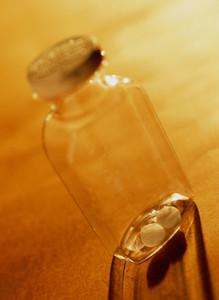Biotech giant Amgen and US generics manufacturer Watson Pharmaceuticals (Watson) announced on 19 December 2011 that the two companies had agreed to collaborate on the development and commercialisation of several cancer antibody biosimilars.
Amgen finally jumps on biosimilars bandwagon
Biosimilars/News
|
Posted 13/01/2012
 0
Post your comment
0
Post your comment

Watson has agreed to contribute up to US$400 million for development costs, while Amgen will use its considerable biotechnology expertise in order to take the lead in developing and manufacturing the biosimilars. Watson will use its extensive experience with generics in order to commercialise and market the products developed under the collaboration, which will be sold under a joint Amgen-Watson label.
Which cancer antibody biosimilars the joint venture will pursue has not been made clear by the companies, but they do state that ‘the collaboration will not pursue biosimilars of Amgen’s proprietary products.’
The aim of the collaboration is to ‘bring safe, high quality and cost-effective biosimilar therapies to patients’, Amgen and Watson said in their joint statement.
Amgen has much at stake, as its blockbuster rheumatoid arthritis biotech drug Enbrel (etanercept) will lose patent protection in the US in October 2012. The US-based biotech has already said that it would consider biosimilars back in January 2011 [1].
The biosimilars business has been characterised by partnerships, which is not surprising considering that the costs of developing a typical biosimilar are estimated to be more than US$100 million and that they may take five to six years to develop–much more than a small molecule generic–reflecting the complexity of the molecules in question [2].
While small molecule drugs are ideal for generics replication, biological drugs are not so simple. Biological drugs are usually large, complex molecular structures derived from or produced through a living organism, making them very difficult to replicate. Even for the originator biological, small changes in the manufacturing process can cause changes in the final product, making things even more complicated for potential biosimilars. And the problem is that even if a biosimilar is proven to be safe and effective, it is likely to still have different properties than the originator product [3].
Despite this, companies are still flocking to get a piece of the biosimilars pie, which is not surprising as the prize is huge. Over the next decade, patents on biotech drugs with global sales of Euros 90 billion are set to expire, according to the European Generic medicines Association [2].
Related articles
Current status of biosimilar development
Market opportunities for biosimilars
References
1. GaBI Online - Generics and Biosimilars Initiative. Everybody jumping on the biosimilars bandwagon [www.gabionline.net]. Mol, Belgium: Pro Pharma Communications International; [cited 2012 January 13]. Available from: www.gabionline.net/Biosimilars/News/Everybody-jumping-on-the-biosimilars-bandwagon
2. GaBI Online - Generics and Biosimilars Initiative. Partnerships will drive biosimilar development [www.gabionline.net]. Mol, Belgium: Pro Pharma Communications International; [cited 2012 January 13]. Available from: www.gabionline.net/Biosimilars/News/Partnerships-will-drive-biosimilar-development
3. GaBI Online - Generics and Biosimilars Initiative. Current status of biosimilar development [www.gabionline.net]. Mol, Belgium: Pro Pharma Communications International; [cited 2012 January 13]. Available from: www.gabionline.net/Biosimilars/General/Current-status-of-biosimilar-development
Source: Amgen, Watson
Research
Reaching ESG goals in pharmaceutical development
What is the future for the US biosimilar interchangeability designation
General
Samsung Bioepis wins Pyzchiva case; Regeneron patent rulings threaten foreign biosimilars
Chinese biosimilars go global: growth, partnerships, and challenges
Most viewed articles
The best selling biotechnology drugs of 2008: the next biosimilars targets
Global biosimilars guideline development – EGA’s perspective
Related content
EMA recommends approval for teriparatide biosimilar Zandoriah
FDA approves third interchangeable ranibizumab biosimilar Nufymco
FDA approves Poherdy (first interchangeable pertuzumab) and Armlupeg (pegfilgrastim) biosimilars
EMA recommends approval for insulin glargine biosimilar Ondibta and denosumab biosimilar Osqay
FDA approves third interchangeable ranibizumab biosimilar Nufymco

Biosimilars/News Posted 09/02/2026
FDA approves Poherdy (first interchangeable pertuzumab) and Armlupeg (pegfilgrastim) biosimilars

Biosimilars/News Posted 27/01/2026
EMA recommends approval for insulin glargine biosimilar Ondibta and denosumab biosimilar Osqay

Biosimilars/News Posted 16/01/2026
The best selling biotechnology drugs of 2008: the next biosimilars targets







Post your comment